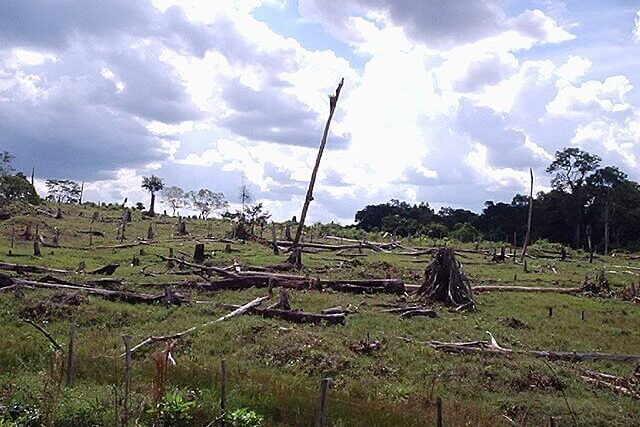
A new study suggests that ecological collapse may occur sooner than previously anticipated.
Due to the interconnectedness and amplification of tipping points in ecosystems, the research indicates that more than a fifth of ecosystems worldwide, including the iconic Amazon rainforest, could face catastrophic breakdown within a human lifetime.
“It could happen very soon,” said Prof Simon Willcock of Rothamsted Research, who co-led the study. “We could realistically be the last generation to see the Amazon.”
Published in Nature Sustainability, the study delves into the science of tipping points, a relatively undeveloped field compared to the well-established link between fossil fuels and global heating. While the Intergovernmental Panel on Climate Change has been cautious about predicting tipping points, certain scientists, including Carlos Nobre, have raised concerns that these tipping points could emerge much earlier than expected, as highlighted by this study.
Typically, previous studies focused on individual drivers of destruction, such as climate change or deforestation. However, this research examines how multiple threats, like water stress, degradation, and pollution from mining, can compound and accelerate the breakdown of ecosystems.
The study looked at two lake ecosystems and two forests, utilising computer models with numerous variable adjustments. Surprisingly, they found that up to 15% of ecosystem collapses occurred due to new stresses or extreme events, even while the primary stress was maintained at a constant level. This highlights the vulnerability of ecosystems, as new pressures like global warming and extreme weather events could push them towards a tipping point.
Despite the study’s limited scope, the authors emphasise the urgency for policymakers to act promptly in addressing environmental issues.
“Previous studies of ecological tipping points suggest significant social and economic costs from the second half of the 21st century onwards. Our findings suggest the potential for these costs to occur much sooner,” the co-author Prof John Dearing noted.
The findings, while devastating, also underscore the potential positive impact of making small changes in a system. By analysing systems dynamically, scientists gain insights into how seemingly minor alterations can lead to significant consequences.
One example mentioned is Lake Erhai in China, which suffered a collapse due to multiple stresses like agricultural runoff, climate variation, and pollution. However, the lake has also demonstrated signs of recovery, showcasing the potential for positive change through effective management and restoration efforts.
This study serves as a stark warning that the risk of ecological collapse is substantial and that addressing these issues requires immediate and coordinated action. To protect our precious ecosystems, it is crucial for policymakers, scientists, and communities to work together to mitigate existing threats and build resilience to withstand future challenges.
“The same logic can work in reverse. Potentially if you apply positive pressure, you can see rapid recovery,” he said, though he emphasised time was running out faster than most people realised.
——————————————————————————
At Natural World Fund, we are passionate about stopping the decline in our wildlife.
The declines in our wildlife is shocking and frightening. Without much more support, many of the animals we know and love will continue in their declines towards extinction.
When you help to restore a patch of degraded land through rewilding to forests, meadows, or wetlands, you have a massive impact on the biodiversity at a local level. You give animals a home and food that they otherwise would not have had, and it has a positive snowball effect for the food chain.
We are convinced that this is much better for the UK than growing lots of fast-growing coniferous trees, solely to remove carbon, that don’t actually help our animals to thrive.
This is why we stand for restoring nature in the UK through responsible rewilding. For us, it is the right thing to do. Let’s do what’s right for nature!
Donate today at https://naturalworldfund.com/ and join in the solution!


Greetings! Very helpful advice in this particular article! It is the little changes that will make the largest changes. Many thanks for sharing!